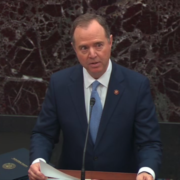
The United Kingdom has embraced cousins marrying. Fearful of being called racist as more and more migrants from places like Pakiston enter the country, England’s National Health Service has stumbled into a storm of criticism after publishing official guidance that appeared to frame first-cousin marriages in positive terms, touting “stronger extended family support systems and economic advantages,” even as medical experts warned of heightened genetic risks and politicians called for prohibition, reported The Telegraph.
The guidance, circulated last week through NHS England’s Genomics Education Programme, acknowledged the well-documented dangers: the likelihood of serious inherited conditions such as sickle cell disease or cystic fibrosis rises from 2–3% in the general population to 4–6% for children of first cousins. Yet the document emphasized lifestyle factors such as smoking, drinking, and late pregnancies as comparable risks—and, pointedly, ones not outlawed in the United Kingdom. It recommended genetic counselling and public health outreach to enable “informed choices without stigmatising certain communities and cultural traditions.”
The reaction was swift. Conservative MP Richard Holden told the Mail on Sunday: “Our NHS should stop taking the knee to damaging and oppressive cultural practices. The Conservatives want to see an end to cousin marriage as a backdoor to immigration too, but Labour are deaf to these sensible demands. Sir Keir Starmer should stop running scared of the misogynistic community controllers and their quislings who appear in the form of cultural relativist-obsessed sociology professors, and ban a practice the overwhelming majority, from every community in Britain, want to see ended for good.”
Dr. Patrick Nash, director of the Pharos Foundation and a specialist in religious law, condemned the guidance as “truly dismaying.” He declared: “Cousin marriage is incest, plain and simple, and needs to be banned with the utmost urgency—there is no ‘balance’ to be struck between this cultural lifestyle choice and the severe public health implications it incurs. This official article is deeply misleading and should be retracted with an apology so that the public is not misled by omission and half-truths.”
By Monday morning the guidance had vanished from the NHS website. An NHS England spokesman attempted to calm the uproar, clarifying: “The article published on the website of the Genomics Education Programme is a summary of existing scientific research and the public policy debate. It is not expressing an NHS view.”
Yet the controversy has reignited a simmering political fight over cousin marriage, which has remained legal since the sixteenth century—originating, curiously enough, as a Tudor-era accommodation that enabled Henry VIII to wed Catherine Howard. Though rare across the wider population, the practice is concentrated within certain communities, notably among British Pakistanis. The NHS document itself cited the “Born in Bradford” study, which found higher rates of speech and language difficulties among children of cousins (11% compared with 7% for unrelated parents) and lower rates of strong developmental progress.
Holden, who introduced a bill last December to outlaw cousin marriage, has linked the issue not only to public health but to broader questions of social cohesion and women’s rights. “The practice is not really conducive to modern British society,” he argued in Parliament, proposing even to criminalize sex between cousins by attaching amendments to anti-social behaviour laws. His legislation, backed by Robert Jenrick, faces its second reading in July but has little chance of government support under Starmer.
Public sentiment, however, runs decisively in Holden’s favor, but barely, showing how mass immigration has already changed the culture of Great Britain. A May YouGov poll found only 77% of Britons want cousin marriage banned outright, with support for prohibition nearly uniform across Conservative, Labour, and Liberal Democrat voters. Reform UK supporters registered the strongest backing at 82%. Among British Pakistanis and Bangladeshis, opinion was divided—39% favouring legality, 47% opposing it.
Opponents of prohibition, meanwhile, warn that the debate is sliding into dangerous territory, as liberals always do. John Wright of the Born in Bradford project called the campaign “misguided,” saying it risks feeding “a deep and dark well of racism.” Nazir Afzal, former chief prosecutor, stressed that cousin marriage rates are already declining and that politicizing the matter could undercut education. Mustafa Al-Dabbagh of the Muslim Council of Britain dismissed it as an issue “unworthy of focus.”
Still, the controversy resonates with Britain’s broader struggles over cultural practice, integration, and child protection. In Rotherham, where grooming gangs preyed on some 1,400 girls between the 1980s and 2013, critics have accused authorities of ignoring abuse out of fear of appearing racist. A 2025 report by Baroness Casey underscored the disproportionate involvement of immigrant men in certain areas, even as national data remain patchy.
Elsewhere in Europe the trend is moving in the opposite direction. Norway outlawed cousin marriages last year, while Sweden and Denmark are actively weighing bans, even amidst calls that such bans are racist toward Muslims or Middle Easterners.
During one of the parliamentary debates on the bill, Fox News explained, Independent MP Iqbal Mohamed, who rejects a legislative prohibition on first-cousin marriage, admitted “there are documented health risks with first-cousin marriage.” He said this is an issue that “needs greater awareness.” He, however, said the way to address this “is not to empower the state to ban adults from marrying each other.” He does not think a ban would be “effective or enforceable.”
According to medical experts, the children of first-cousin marriages are highly vulnerable to contracting an autosomal recessive genetic disorder,
Mohamed said, “The matter needs to be approached as a health awareness issue and a cultural issue where women are being forced against their will to undergo marriage.”
According to Mohamed, an estimated 35% to 50% of all sub-Saharan populations prefer or accept first-cousin marriage, and it is common in the Middle East and South Asia.
The deeply unpopular Prime Minister Keir Starmer brushed aside concerns about cousins marrying each other and dismissed the ban. His approval sits at just 13 percent. The next United Kingdom general election is scheduled to be held no later than 2029, so the English may have to wait a few more years to rejoin the first world in saying that incest is wrong.
[Read More: Major Teachers Union Supports Terrorist]











